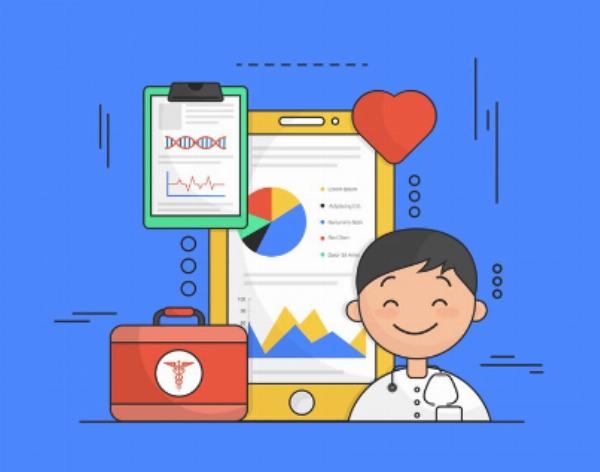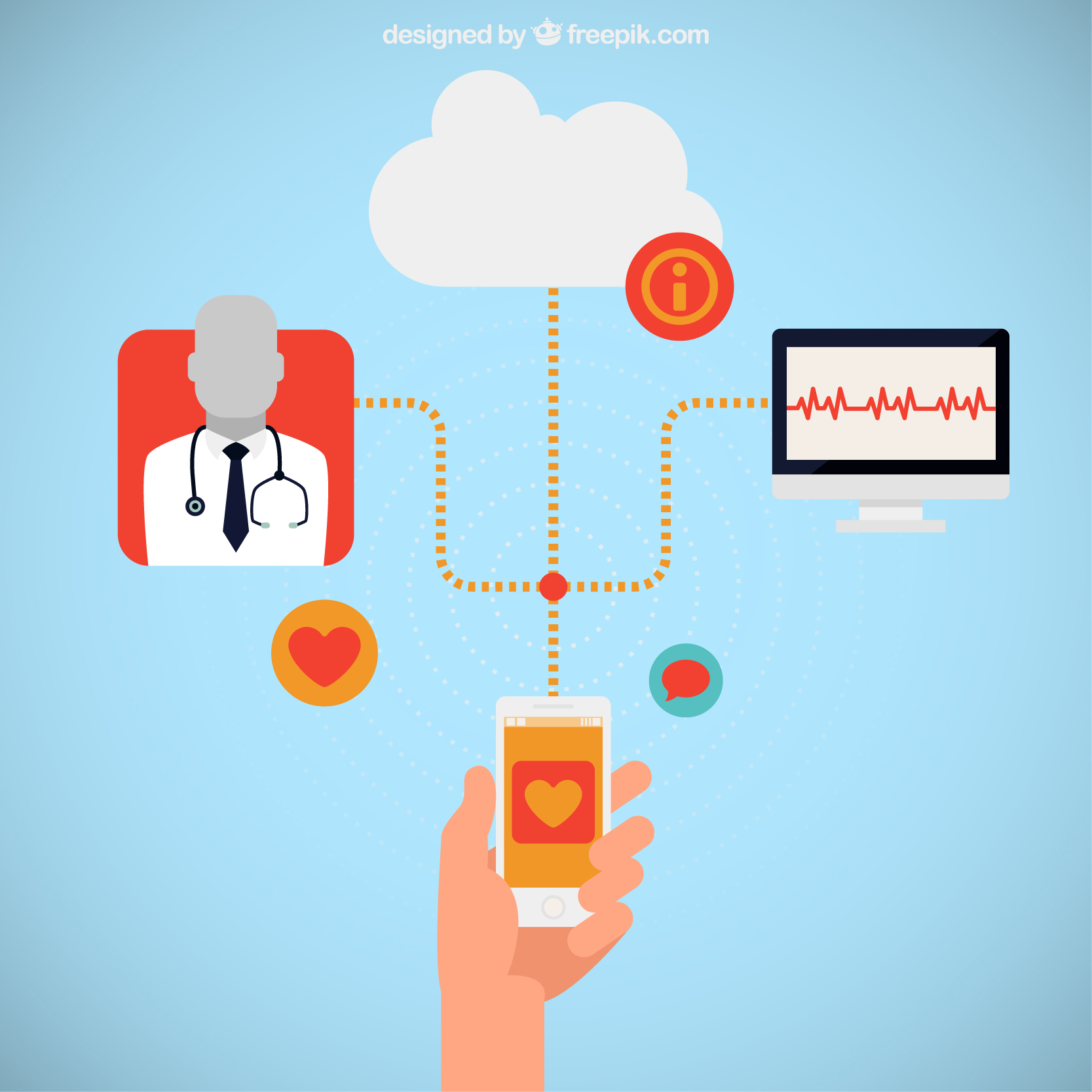Can Chatbots Be Your Next Healthcare Assistant?

Strong 8k brings an ultra-HD IPTV experience to your living room and your pocket.
The healthcare industry is undergoing a digital transformation, driven by advancements in technology and the increasing demand for efficient, personalized care. Among the various innovations reshaping healthcare, chatbots have emerged as powerful tools with the potential to revolutionize patient care. These AI-powered assistants are designed to interact with users, answer questions, and perform tasks traditionally handled by human healthcare professionals. But can chatbots truly become our next healthcare assistants? In this blog, we will explore the capabilities of healthcare chatbots, their benefits, challenges, and the future of AI in healthcare assistance.
Understanding Healthcare Chatbots
Healthcare chatbots are AI-driven programs that use natural language processing (NLP) and machine learning to interact with users through text or voice interfaces. These chatbots can perform a range of tasks, from answering simple health-related queries to providing mental health support and managing chronic conditions. By leveraging vast amounts of medical data and continuously learning from interactions, chatbots can offer personalized, real-time assistance to patients.
Key Capabilities of Healthcare Chatbots
Symptom Checking and Triage: Chatbots can help users assess their symptoms and provide guidance on the appropriate level of care. By asking a series of questions about the symptoms, chatbots can determine whether the user should seek immediate medical attention, schedule a doctor's appointment, or manage the condition at home.
Appointment Scheduling: Chatbots can streamline the appointment scheduling process by integrating with healthcare providers' systems. Patients can book, reschedule, or cancel appointments through a chatbot, reducing the administrative burden on healthcare staff.
Medication Reminders: For patients managing chronic conditions or multiple medications, chatbots can provide timely reminders to take their medications. This can improve adherence to treatment plans and enhance patient outcomes.
Mental Health Support: Chatbots can offer mental health support by providing resources, exercises, and immediate responses to users in distress. They can serve as a first point of contact for individuals seeking help and guide them to appropriate professional care.
Health Education and Information: Chatbots can deliver accurate, up-to-date health information and answer users' questions about diseases, treatments, and preventive measures. This empowers patients to make informed decisions about their health.
Benefits of Healthcare Chatbots
The integration of chatbots into healthcare offers numerous benefits for patients, providers, and the overall healthcare system.
1. Enhanced Accessibility
Healthcare chatbots are available 24/7, providing patients with immediate access to information and support. This is particularly valuable for individuals in remote areas or those with limited access to healthcare facilities.
2. Improved Efficiency
By automating routine tasks such as appointment scheduling and medication reminders, chatbots can reduce the administrative workload on healthcare staff. This allows providers to focus on delivering high-quality care to patients.
3. Personalized Care
Chatbots can offer personalized interactions based on the user's medical history, preferences, and real-time data. This level of customization can improve patient engagement and adherence to treatment plans.
4. Cost Savings
The use of chatbots can lead to significant cost savings for healthcare organizations. By reducing the need for in-person visits and optimizing resource allocation, chatbots can help lower operational costs.
5. Early Intervention and Preventive Care
Chatbots can play a crucial role in early intervention and preventive care by monitoring symptoms, providing health education, and encouraging healthy behaviors. This proactive approach can help prevent the progression of diseases and reduce the burden on healthcare systems.
Challenges and Limitations
While the potential of healthcare chatbots is promising, there are several challenges and limitations that need to be addressed to fully realize their capabilities.
1. Data Privacy and Security
The use of chatbots in healthcare involves handling sensitive patient data, raising concerns about privacy and security. Ensuring that chatbots comply with regulations such as HIPAA and GDPR is essential to protect patient information from breaches and misuse.
2. Accuracy and Reliability
The accuracy and reliability of chatbot responses are critical for patient safety. Chatbots must be trained on high-quality medical data and continuously updated to provide accurate information. Ensuring that chatbots can recognize their limitations and refer users to human professionals when necessary is also important.
3. User Trust and Adoption
Building trust in chatbots is essential for widespread adoption. Patients may be hesitant to rely on AI-driven assistants for their healthcare needs. Demonstrating the efficacy and safety of chatbots through clinical validation and transparent communication can help build user confidence.
4. Integration with Healthcare Systems
Integrating chatbots with existing healthcare systems and electronic health records (EHRs) can be complex and costly. Ensuring seamless interoperability and data exchange is crucial for the effective functioning of chatbots in healthcare.
5. Ethical Considerations
The use of AI in healthcare raises ethical considerations, such as bias in algorithms and the potential for over-reliance on technology. Developing ethical guidelines and ensuring that chatbots are used as a complement to, rather than a replacement for, human care is important.
The Future of Chatbots in Healthcare
Despite the challenges, the future of healthcare chatbots is bright, with ongoing advancements in AI and machine learning driving their evolution. Here are some potential future directions for healthcare chatbots:
1. Advanced Natural Language Processing
Improvements in natural language processing (NLP) will enable chatbots to understand and respond to complex medical queries more accurately. This will enhance their ability to provide nuanced and contextually relevant information.
2. Integration with Wearable Devices
Integrating chatbots with wearable devices and health monitoring systems can provide real-time data for more personalized and proactive care. Chatbots can analyze data from wearables to offer timely health advice and alerts.
3. Multilingual and Multimodal Capabilities
Developing chatbots with multilingual and multimodal capabilities (e.g., text, voice, and visual interfaces) will make them more accessible to diverse populations. This can help overcome language barriers and improve user engagement.
4. AI-Driven Diagnostics and Treatment Recommendations
Future chatbots may incorporate advanced AI algorithms to assist with diagnostics and treatment recommendations. By analyzing large datasets and medical literature, chatbots can support healthcare providers in making informed clinical decisions.
5. Collaborative Care Models
Chatbots can facilitate collaborative care models by enabling seamless communication and information sharing between patients, providers, and caregivers. This can improve care coordination and patient outcomes.
Conclusion
Healthcare chatbots have the potential to become valuable assistants in the healthcare ecosystem, offering enhanced accessibility, efficiency, and personalized care. While there are challenges to address, ongoing advancements in AI and machine learning are paving the way for more sophisticated and reliable chatbots. By leveraging these technologies and ensuring robust privacy, security, and ethical considerations, chatbots can play a transformative role in improving patient care and outcomes. As we navigate the future of healthcare, chatbots will undoubtedly be an integral part of the journey towards more accessible, efficient, and patient-centered care.
Note: IndiBlogHub features both user-submitted and editorial content. We do not verify third-party contributions. Read our Disclaimer and Privacy Policyfor details.





